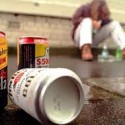Bi-polar disorder- learning the signs and symptoms
There are many emotions that we face, in our everyday life. Some situations make us happy, while some make us sad. People with bi-polar disorder, are extremely affected by these emotions. Bi-polar disorder is also known as the maniac depression or maniac depressive illness and as the name suggests this disorder involves striking mood shifts. So much so, that people with bi-polar disorder do experience fluctuations in their mood from highs of mania to major lows of depression. In other words, the life of a person affected with the bi-polar disorder can be like an “emotional roller coaster”. There are over millions of people affected with this disorder. The better part is that with proper treatment, this disorder can be completely cured. Therefore, learning the signs and symptoms of bi-polar disorder is important.
Since, people with bi-polar disorder, swing between two extremes like severe mania and severe depression, often with periods of “normal mood” in between, there is no such definite pattern of signs and the symptom of bi-polar disorder in a person and varies from individual to individual. There are four different types of signs mainly, mania, hypomania, mixed episode and also depression. People in the manic phase of this disorder are filled with high energy, euphoria and creativity. These people are hyperactive and they sleep very little. These people tend to burst out when others disagree with them.
As compared to mania, hypomania is less severe. People with hypomania; appear to be in an “unusually good mood” but often their mood escalates between mania and major depression. Depression causes the person to be low on energy, inducing suicidal tendency. The mixed episode features extreme mania and depression simultaneously or in alternating frequencies. These mood swings can be very intense and “disruptive to daily functioning” of the affected.
